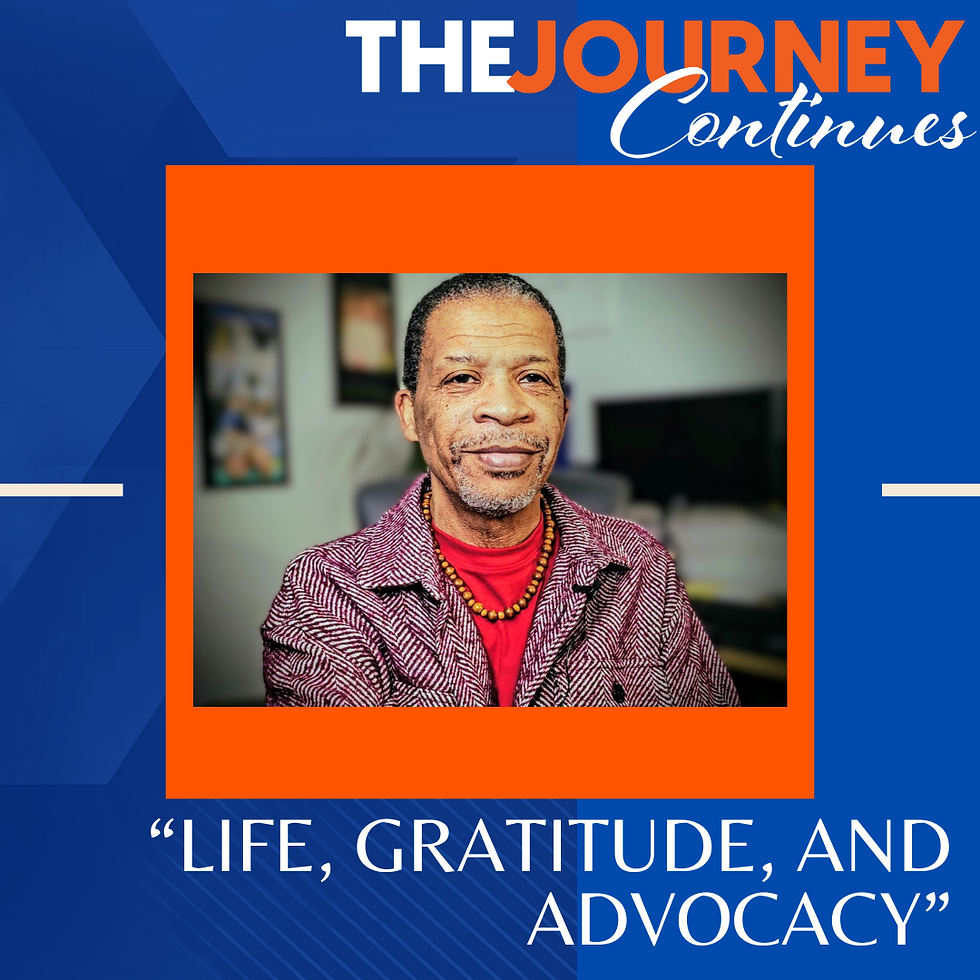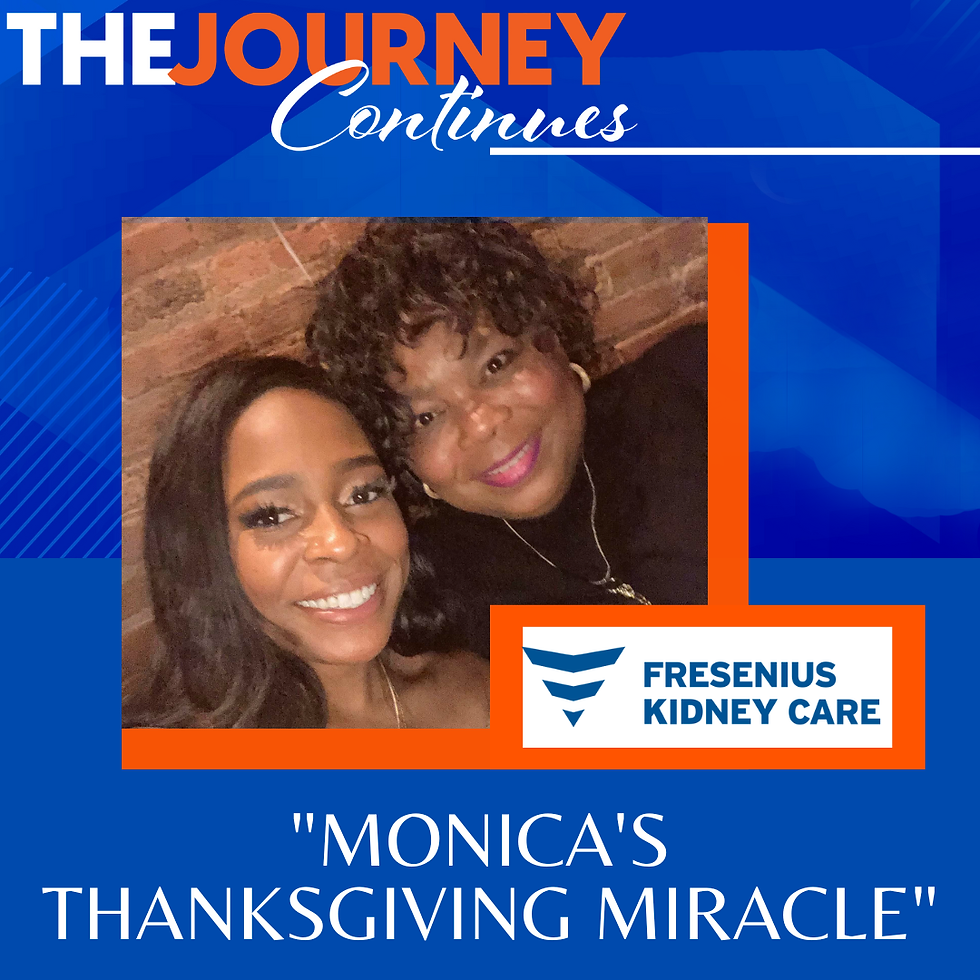Families connect for life-saving kidney transplant
- Dec 3, 2021
- 7 min read

DANVILLE — What started as a Facebook post about a needed kidney transplant connected two families this year and saved a man’s life.
At the time, donor Jamie Norton, 49, a single mother of two daughters, knew only the wife of 43-year-old Jose Cruz Jr.
Jose’s March 10 social media post read: “For those that know me, know that I don’t normally put myself out there on here like this. In mid 2016 I was diagnosed with end stage renal disease, which has affected just about every facet of my life. Today marks three years and 90 days of being on dialysis to keep me alive. It has been hard both mentally and physically. Today I got some of the best news a person in my situation can get. I got a call from the transplant center that I enrolled at telling me that as of today I am officially on the national transplant registry. The main reason for me putting myself out there in such a way is that in a roundabout way I’m asking for help in getting it out there that if there are any potential donors ...”
His wife, Amanda, shared his post and said, “Guys, it has been a long, hard road to get Jose on the transplant list, but he finally got notified today that he was approved! His wait time is retro-active to when he started dialysis, but his blood type can wait up to eight years to find a donor, unless someone volunteers to help save his life. If you or anyone you know might be interested in donating life, let me know. And you do not have to be a matching blood type to help. Please share and help spread the word so his boys can grow up with their dad.”
Jamie said she saw the post, knowing Amanda from several years before.
“I had recently lost like 60 pounds and gotten really healthy and was running and was doing yoga and was in the best shape that I’d ever been in,” Jamie said.
“When I saw that post, I felt like God was like you need to see if you can do that,” Jamie said.
She said she then thought to herself, “excuse me, I’m a single mom. I can’t do that.”
“And it just kept eating at me,” Jamie said, adding that she kept thinking about Jose.
After a few days of thought, “I finally kind of made a deal with God. Ok, I’ll test. I’ll go see if I can even do it. But I said if one single thing blocks me, comes up, then I’m excused. Because I at least did what you told me to do.”
Jamie said the process is intense. When she called Amanda, Amanda was asking her if she was serious. Jamie said she wanted to see about it. Jamie and Jose are both B negative blood types.
Jamie called the OSF transplant team and they had someone interview her. Jamie said they record the potential donor saying that he or she understands you can’t get money or reimbursed for this.
A kidney donor can’t have high blood pressure, diabetes, major health issues, and your BMI (body mass index) needs to be under 30.
Then they did a full screening and took about 15 vials of blood, then a 24-hour urine collection on her, Jamie said.
When all of that was OK, the next step was Jamie went to Peoria for the day. They do a CT scan, an EKG, chest x-ray and more blood work.
Jamie, who works as a certified registered nurse anesthetist at OSF HealthCare Sacred Heart Medical Center in Danville, already had her other health screenings recently completed, including a mammogram and colonoscopy, and those were all fine.
The last thing they did is mix together Jose’s blood and her blood to see if there’s any type of reaction or rejection.
The OSF team called Jamie in May and said everything was a go. All her tests were wonderful, and she was a match for him. May 5, she went for the all-day evaluation. She found out she was a match for Jose on May 11.
“We kept each other updated all throughout the process,” Jamie said.
Jamie said part of what weighed on her was that Jose and Amanda have a 2-year-old, and that Jose be there as his children grow up.
In her job, Jamie also knows first hand how hard dialysis is on people, and every year they’re on it, their chances of making it to transplant drop.
Jamie said OSF also sent her educational videos about what donation means, and they want to make sure the donor has a support system in place.
She said she thought her family would be like, what are you thinking. But they said it was super cool what she was doing. Most of Jamie’s family already donates blood and does things like that.
“They were very supportive,” Jamie said, adding that working in the medical field, everybody there also was very supportive. Jamie has eight weeks of vacation with her job, and needed six weeks for recovery.
The laparoscopic nephrectomy took place on June 21 in Peoria.
“It was a laparoscopic procedure, which is what they typically do now. And they said that almost always they will take your left kidney because it has a little bit of a longer stem on it that goes behind stuff, so that they’ve got more room to attach and it’s easier to get to,” Jamie said.
She said she had a poke up high and a poke down low and they went through her belly button to grab it and pull it out. There’s no big incision like people used to have.
It took about five hours to remove one of her kidneys.
Jose was in the room next door and they took the kidney right over for the transplant.
In recovery, Jose and Jamie were on the same floor, right across the hall from each other. Jose’s family would go back and forth to each room, hugging Jamie and Jose and checking on both of them. Jamie and Jose also would toddle to each other’s rooms to check on each other.
Immediately, the kidney was working in Jose.
“It’s been quite life changing..,” Jose said.
He said at first he didn’t want to get his hopes up too much about finding a matching donor.
It was almost four years of him being on dialysis.
“It wasn’t going very well,” Jose said. “it was emotionally and physically draining with the dialysis.”
He said it was a big sigh of relief when Jamie came forward, and it was found she was a match.
He said after the transplant, it took time to get his medications adjusted, and he started feeling better and doing a little bit more around the house. He had to take things slowly.
For the first three months, he also was on weight restrictions for lifting, and he couldn’t pick up his youngest son. Jose also has a 10-year-old son.
“It’s definitely a blessing and I’m very grateful to her (Jamie),” Jose added.
He said it’s hard to express his gratefulness in words.
He’s still going to Peoria once a month for checkups, and he’s now able to do most things. He’s not 100 percent yet to go back to work.
“I’m trying to work on that,” he said, but added he’s enjoyed being a stay-at-home dad.
When Jamie was able to go home, she had a friend stay with her to help her and her daughters, 16-year-old Polly, and 12-year-old Paige. Polly also this year donated blood for the first time at Danville High School.
Jamie said her neighbors, co-workers and fellow St. James United Methodist parishioners were very supportive.
Jamie said the kidney removal was more painful the first 24-48 hours than she expected. Ice packs helped more than anything, she said.
She started jogging again at eight weeks and now is back running 3.5 miles, doing yoga and “feeling completely like myself.” She said she can’t notice any difference other than the scars.
In December, she’ll have a full panel of labs, and then at a year; and they’ll monitor her for 10 years. She’s part of a database where they monitor her closely.
Also because she’s donated, if she ever goes into kidney failure, she goes at the top of the list for receiving a transplant. The risk of her going into renal failure after donating a kidney is under 1 percent, she said.
They’ve told her the main things to keep herself healthy are not to gain a lot of weight, and not take anything that damages your kidney, such as being careful of ibuprofen and those kinds of things. She should tell her physicians she has one kidney, and keep on top of her fluids.
“I would highly, highly recommend it to anybody who’s able to do it. A lot of people aren’t able to do it because they have various health concerns and there’s other things,” Jamie said about being a kidney donor.
By the time she got through the initial donor matching process, she had pretty much decided that even if she wasn’t a match for Jose, she would put herself in the pool to find another match.
“I was at the point of thinking it’s so rare that people can do this, and I’ve done all these tests. Then they call me and say you don’t need to do that. You are a perfect match for Jose. He can have your kidney,” Jamie said.
Jose is off dialysis and continues to do well.
A kidney from a living donor also lasts longer, Jamie said.
“I don’t regret doing it at all,” Jamie said. “It’s one of the few things in my life that I felt like was absolutely right and good.”
Jamie said when she found out she was a match and that the transplant was going to happen, she had a little panic attack, thinking what has she done?
The doctors and nurses said they’ll cover for a donor if the donor changes their mind. They want to be sure the donor is doing it with no pressure.
“I’m a Christian and I prayed about it and I was just really like what if something happens to me God? I just felt like He was like this is no coincidence. If all of these things lined up and it was this right, I’m not going to drop you halfway through this. You guys will both get through this, and it’s going to succeed and you’re both going to be OK. I kind of had a peace about it, and I was just like I can do this,” Jamie said.
She didn’t have any more second thoughts or freak-outs.
Since the June transplant, the families remain in touch and they had an outdoor gathering together. It’s been a little more complicated due to Covid.
Jamie said there are so many thousands of people on the transplant wait list who are dying before they get a chance. She hopes in her day and age, science gets to a point to grow organs or genetically engineer them.





Comments